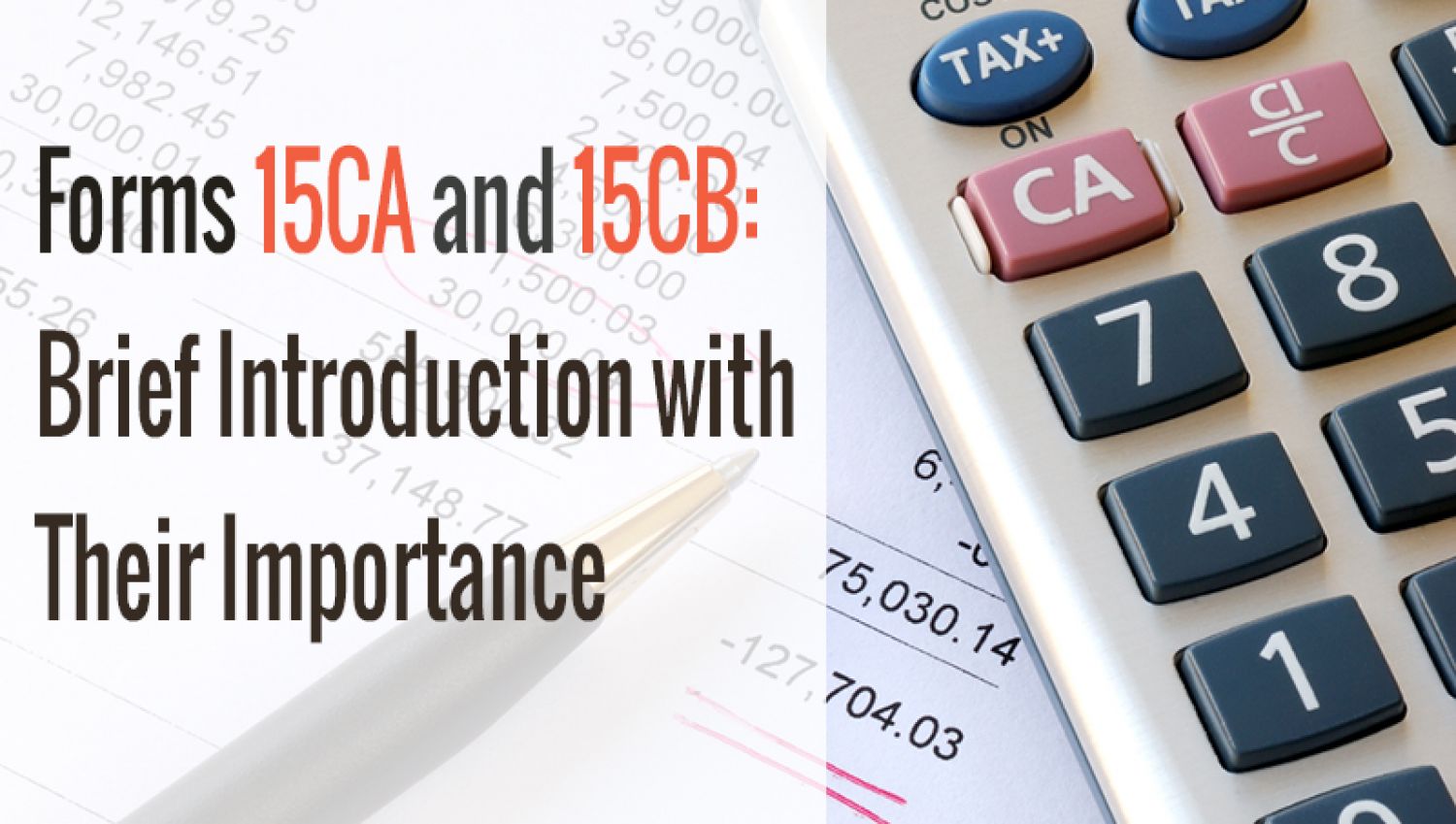What is a 15CA-15CB Filing?
Full Meaning and Legal Insight for Indian Taxpayers
If you’re making payments to a non-resident or a foreign entity from India, you’ve likely come across the terms Form 15CA and Form 15CB. These forms are part of the Indian government’s strategy to ensure that all foreign remittances comply with domestic tax laws. Here's everything you need to know.
🔍 What is Form 15CA?
Form 15CA is a declaration of remittance made by a resident (individual or business) to a non-resident. It is submitted online to the Income Tax Department before remitting any sum outside India.
✅ Key Purpose:
-
To ensure tax is deducted at source (TDS) before foreign remittance.
-
To track and monitor foreign transactions under Section 195 of the Income Tax Act.
📄 Who Should File It?
-
Anyone (individual, firm, company) making a payment to a foreign entity or a non-resident.
🧾 What is Form 15CB?
Form 15CB is a Chartered Accountant’s certificate that verifies the details and taxability of the remittance. It ensures that tax has been correctly deducted under Indian tax laws.
✅ Why It’s Important:
-
Validates the rate and nature of TDS.
-
Assures banks and tax authorities that the payment is not in violation of the law.
-
Required before submitting Form 15CA (Part C).
✍️ Signed By:
A Chartered Accountant (CA) registered with the Indian Income Tax Department.
📌 When is 15CB Required?
| Type of Remittance | Form Required |
|---|---|
| < ₹5 lakh, taxable | 15CA Part A only |
| > ₹5 lakh, certificate obtained | 15CA Part B |
| > ₹5 lakh, taxable | 15CB + 15CA Part C |
| Not taxable | 15CA Part D only |
🏛️ Legal Basis
The 15CA/15CB framework is governed by:
-
Section 195 of the Income Tax Act, 1961
-
Rule 37BB of the Income Tax Rules, 1962
These provisions aim to:
-
Prevent tax evasion in cross-border transactions.
-
Enable effective monitoring of international fund transfers.
-
Hold remitters accountable for tax compliance.
⚖️ Consequences of Non-Compliance
Failing to file or incorrectly filing 15CA/15CB can result in:
-
Hefty penalties (up to ₹1 lakh under Section 271-I)
-
Delays or blocks in remittance by banks
-
Scrutiny by the Income Tax Department
✅ Summary
| Form | Purpose | Who Signs It | When Required |
|---|---|---|---|
| 15CA | Declaration of foreign remittance | Remitter | Mandatory for most cases |
| 15CB | Tax certification | Chartered Accountant | Required in taxable cases > ₹5 lakh |
